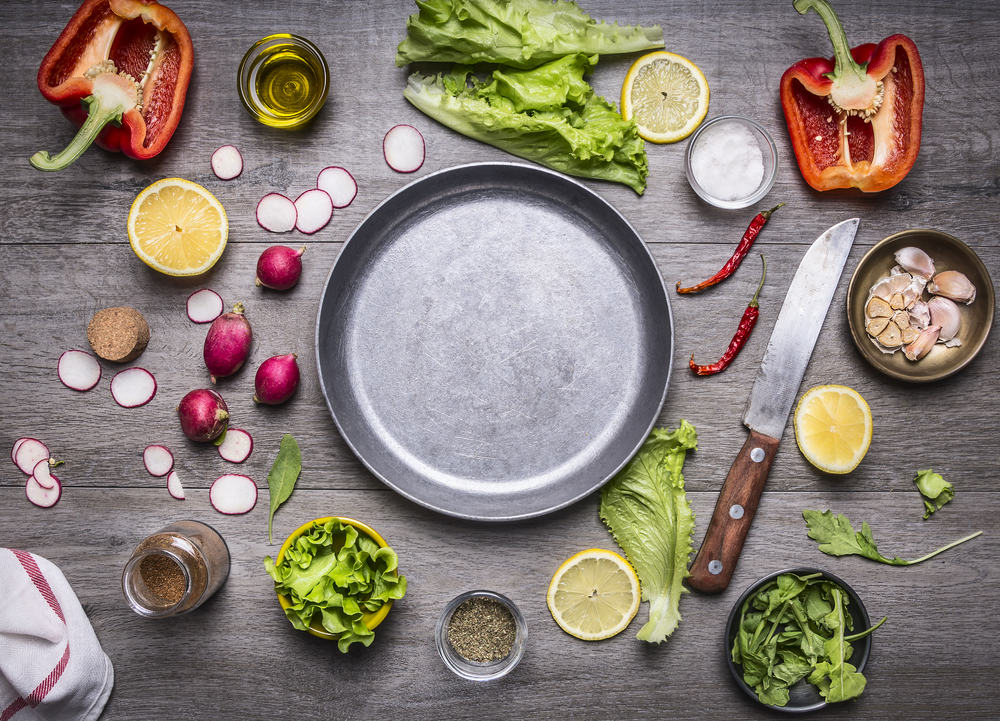Contents:
- Medical Video: Vegans Guide To The Most Commonly Asked Questions
- Is that vegetarian?
- What is vegan?
- Frequently asked questions about vegetarians and vegans
- Is it true that vegetarians and vegans will lack protein?
- What about calcium requirements that are important for bone and tooth formation and prevention of osteoporosis?
- Does a vegetarian and vegan diet mean that you have to live a certain lifestyle?
- What other reasons are being vegetarian and vegan besides animal health and rights?
Medical Video: Vegans Guide To The Most Commonly Asked Questions
You might know some people who are very concerned about animal welfare and choose to be vegan or vegetarian. Maybe you are one of the people who has adopted this lifestyle and diet. For those of you who have ever wondered, "Vegetarian is not a must or not mayeat eggs, huh? "or" Vegan is short for vegetarians, right? "Now it's time for you to get to know two diets and a good lifestyle to lose weight and risk this heart disease.
Is that vegetarian?
Vegetarian is the choice of meat-free food, in a nutshell like that. For vegetarians, not only meat, but seafood also become a taboo for their eating. Vegetarians usually still eat eggs and dairy products (milk, cheese, yogurt) as their food choices or what they are called lacto-ovo-vegetarian. However, there are also some who choose to eat eggs (ovo-vegetarian) but do not eat dairy products, or eat dairy products (lacto-vegetarian) but don't eat eggs.
The motivation of vegetarians is usually for health problems. Vegetarians are indeed one of the diet choices because vegetarians tend to eat more foods with vitamins C and E, fibrous foods, folic acid, potassium, magnesium, carotenoids, and flavonoids, according to health.harvard.edu. Because of this, vegetarians tend to be more resistant to chronic diseases, such as heart disease, cancer, and type 2 diabetes.
What is vegan?
The most basic difference from vegetarians and vegans is a person's motivation to be vegan. Just like vegetarians, someone chooses to be vegan because of health problems, but many of them choose this path for moral and political reasons. The vegans feel that animals exist in this world not to be used by humans, let alone traded.
Vegans don't eat meat, seafood, milk, eggs, even honey. They also do not use items from processed animal skin, such as fashion products such as bags and shoes made from the skin of snakes, crocodiles, or cows.
Frequently asked questions about vegetarians and vegans
Is it true that vegetarians and vegans will lack protein?
Many, you know, meat substitute foods that are also rich in protein, such as nuts, seeds, tofu and tempeh, oatmeal, brown rice, and many other foods. For lacto-ovo-vegetarianthis is not a problem because dairy and egg products are enough to fill the total protein requirements needed by humans.
What about calcium requirements that are important for bone and tooth formation and prevention of osteoporosis?
Indeed there are studies that state that vegans tend to experience fractures, and according to research from EPIC-Oxford, 75% of vegans consume less calcium per day. But, by consuming 525 mg of calcium per day, the possibility of having a broken bone injury decreases. Instead of milk, bok choi, broccoli, cabbage, and spinach can be a substitute for food and processed products.
Does a vegetarian and vegan diet mean that you have to live a certain lifestyle?
Back again to the initial motivation of being vegetarian or vegan. If you choose to go vegetarian or vegan because you feel that animals should be able to be free creatures, and represent them in various activities, such as avoiding products that experiment with products for animals, chances are that you have chosen vegetarian or vegan as an adopted lifestyle. However, if you only choose to become a vegetarian because you see that a vegetarian diet is good for health, then you may just apply it to the pattern of food selection. There are no better or worse two reasons, only equal in their level.
What other reasons are being vegetarian and vegan besides animal health and rights?
Start today for a healthier life. Besides the two points that have been explained about the advantages of living without meat, such as avoiding chronic diseases and one way to lose weight, it turns out that by not eating meat we can also reduce the amount of carbon in the atmosphere. Carbon emissions that are contributors to global warming this is due to the burning of forests used to open new land for livestock and the feces of these animals contain methane gas which is part of the greenhouse gas effect, according to Charlotte Streck, director of Climate Focus Interesting right?
READ ALSO:
- Delicious and Healthy Vegetarian Burger Recipes
- Vegetarians have a higher risk of anemia
- 4 Benefits of Being Vegetarian (Plus Cheap Festive Vegetarian Recipes)












